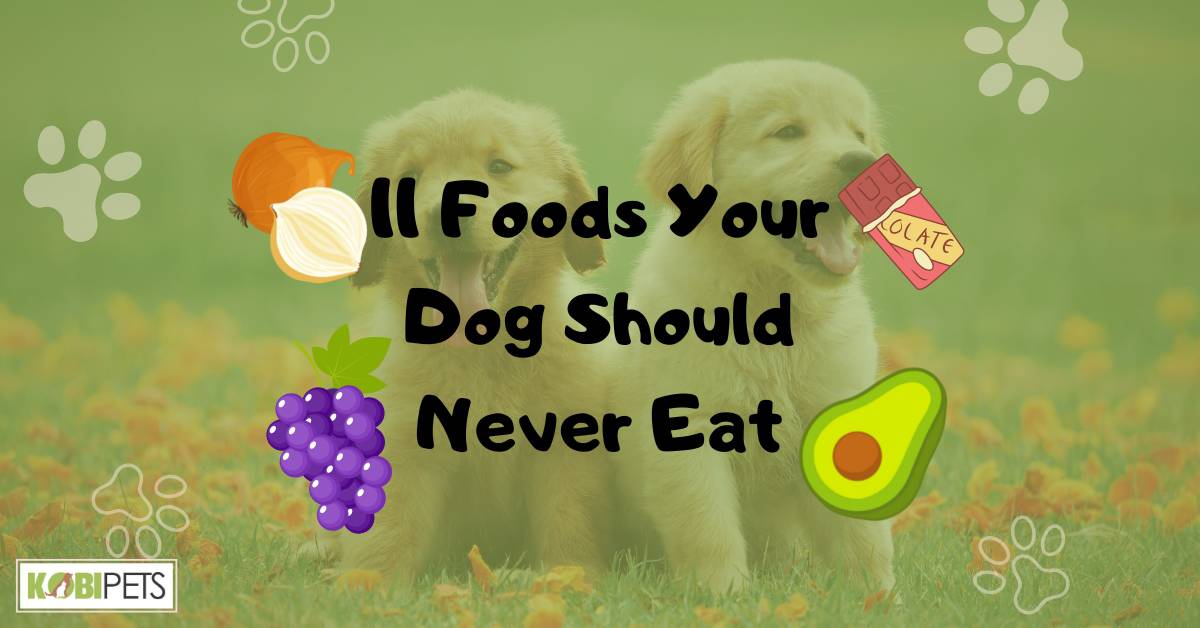
With so many diets and foods, it can be challenging to determine what’s healthiest for your beloved canine companion. However, there are some human foods that are not suitable for dogs.
From chocolate and caffeine to grapes and raisins, learn why these human foods can be dangerous for canine companions and how to keep them safe. Be a responsible pet owner; read this article now to ensure optimal health and well-being for your pup.
1. Chocolate and Caffeine
As a pet owner, it is important to be aware of the foods that are harmful to your furry friend. While chocolate and caffeine may be delicious treats for humans, they can be extremely dangerous for dogs.
Chocolate contains theobromine, which is toxic to dogs. The darker the chocolate, the more concentrated theobromine it contains. Even small amounts of chocolate can cause vomiting, diarrhea, seizures, and in severe cases, death.
Similarly, caffeine can also be toxic to dogs. It can cause restlessness, rapid breathing, heart palpitations, muscle tremors, and even death in extreme cases.
It is important to keep all forms of chocolate and caffeinated products away from your dog’s reach. If you suspect that your dog has ingested any form of chocolate or caffeine, seek immediate veterinary attention.
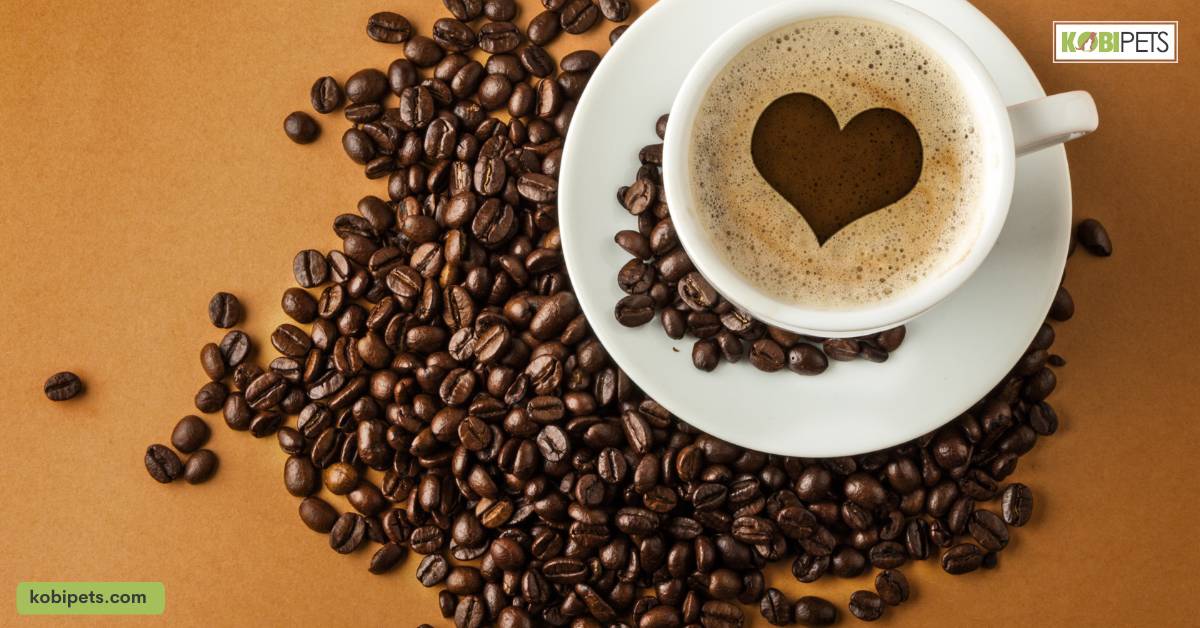
2. Grapes and Raisins
As a dog owner, it’s important to be aware of the foods that can harm your furry friend. While grapes and raisins may seem like healthy snacks for humans, they can actually be toxic to dogs.
Ingesting grapes or raisins can lead to kidney failure in dogs, which can be life-threatening. Even small amounts of these fruits can cause harm, so it’s best to avoid giving them to your dog altogether.
It’s not entirely clear why grapes and raisins are toxic to dogs, but it’s believed that a substance within them causes damage to the kidneys. Symptoms of grape or raisin toxicity in dogs include vomiting, diarrhea, lethargy, and decreased appetite.
If you suspect your dog has ingested grapes or raisins, it’s important to seek veterinary care immediately. Treatment may involve inducing vomiting or administering activated charcoal to prevent further absorption of the toxins.
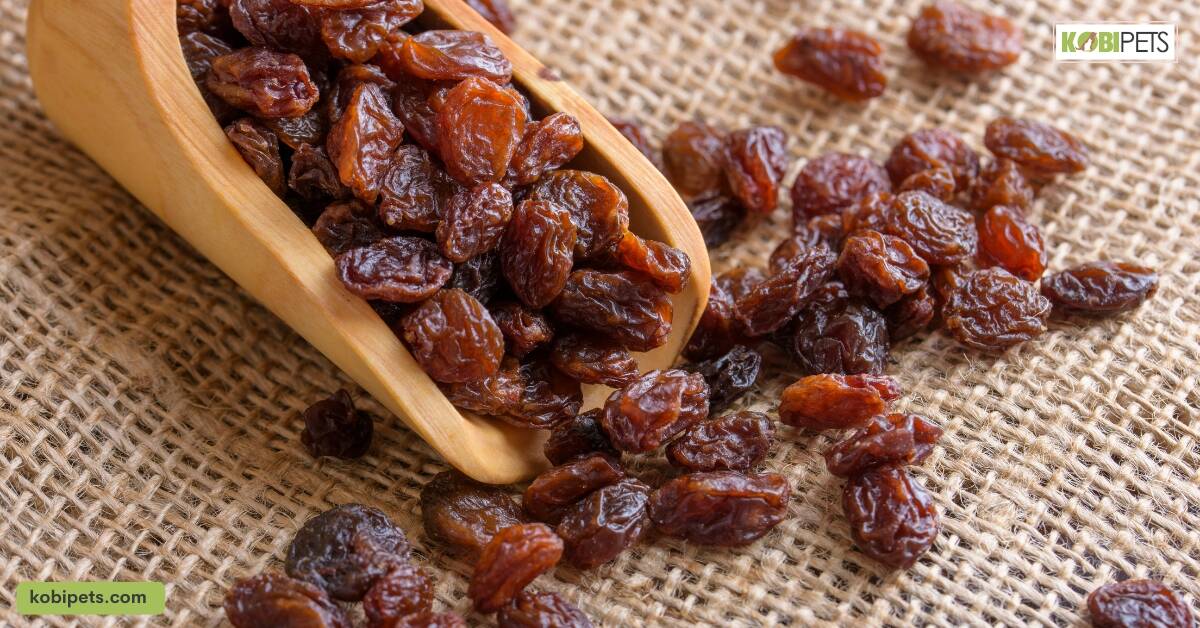
3. Onions and Garlic
While onions and garlic may be healthy for humans, they are two of the most dangerous foods for dogs.
Onions and garlic contain compounds that can damage a dog’s red blood cells, leading to anemia. Symptoms of onion or garlic poisoning in dogs include weakness, vomiting, diarrhea, and difficulty breathing. In severe cases, it can even lead to death.
It’s important to note that both raw and cooked onions and garlic can be toxic to dogs. This means that even small amounts of these foods can cause harm.
If you suspect your dog has ingested onions or garlic, it’s crucial to seek veterinary care immediately. Treatment may involve inducing vomiting or administering medication to counteract the effects of the toxins.
As a responsible pet owner, it’s best to avoid feeding your dog any foods containing onions or garlic. This includes soups, stews, gravies, and other dishes that may contain these ingredients.
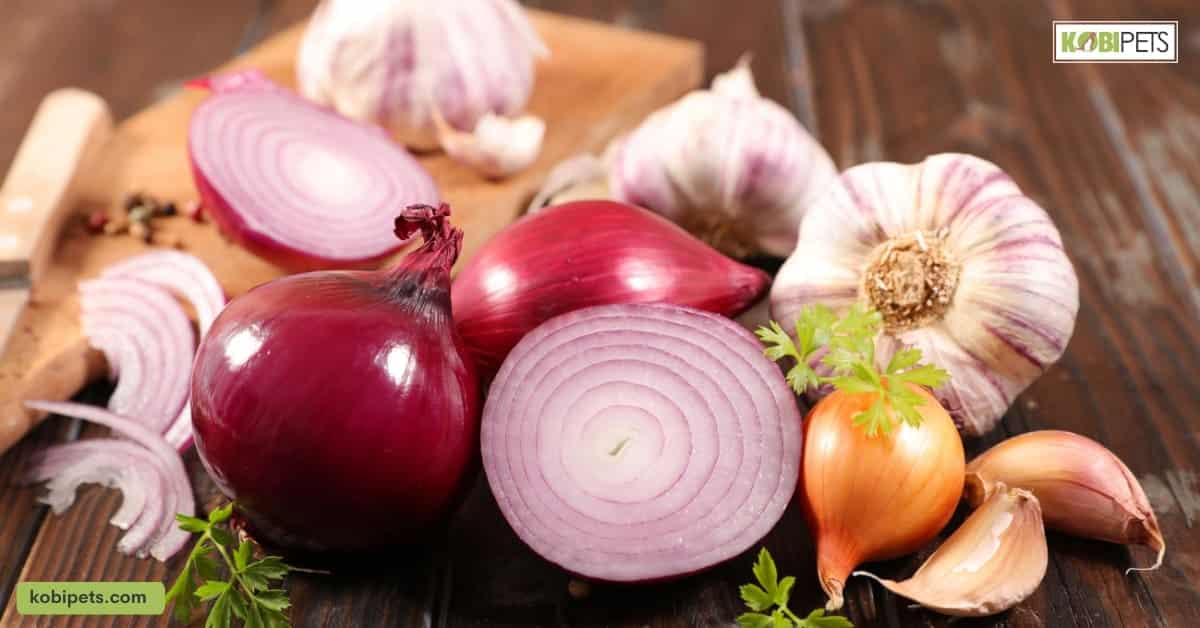
4. Avocado
As much as we love avocados, it’s important to know that they are not safe for our furry friends. Avocados contain a toxin called persin, which can cause vomiting and diarrhea in dogs. In severe cases, it can even lead to heart damage and death.
While the flesh of the avocado is not as toxic as the leaves or pit, it’s still best to avoid giving any part of the fruit to your dog. If you suspect your dog has ingested avocado, contact your veterinarian immediately.
It’s always important to be aware of what foods are safe for our pets and which ones should be avoided. Other foods that should never be given to dogs include chocolate, grapes and raisins, onions and garlic, and alcohol.

5. Alcohol
One such food is alcohol. While it may seem harmless to give your dog a sip of beer or wine, even small amounts of alcohol can be dangerous for dogs.
Alcohol affects dogs differently than humans. Dogs are much smaller and have different metabolism, which means that even small amounts of alcohol can cause serious health problems. Ingesting alcohol can lead to vomiting, diarrhea, difficulty breathing, tremors, coma, and even death.
It’s important to keep all alcoholic beverages out of reach of your dog. This includes beer, wine, liquor, and any other drinks that contain alcohol. If you suspect your dog has ingested alcohol, seek veterinary care immediately.
As responsible pet owners, it’s our duty to keep our furry friends safe and healthy. By being aware of the foods that can harm them, we can ensure that they live long and happy lives.

6. Macadamia Nuts
While some human foods are safe for dogs to consume in moderation, others can cause serious health issues. One food that should never be given to dogs is macadamia nuts.
Macadamia nuts are toxic to dogs and can cause symptoms such as vomiting, diarrhea, fever, muscle tremors, and weakness. In severe cases, they can even lead to paralysis and death. It’s important to keep macadamia nuts out of reach of your dog and avoid giving them any products that contain these nuts.
If you suspect your dog has ingested macadamia nuts or is experiencing any symptoms after consuming them, seek veterinary care immediately. With prompt treatment, most dogs will make a full recovery.
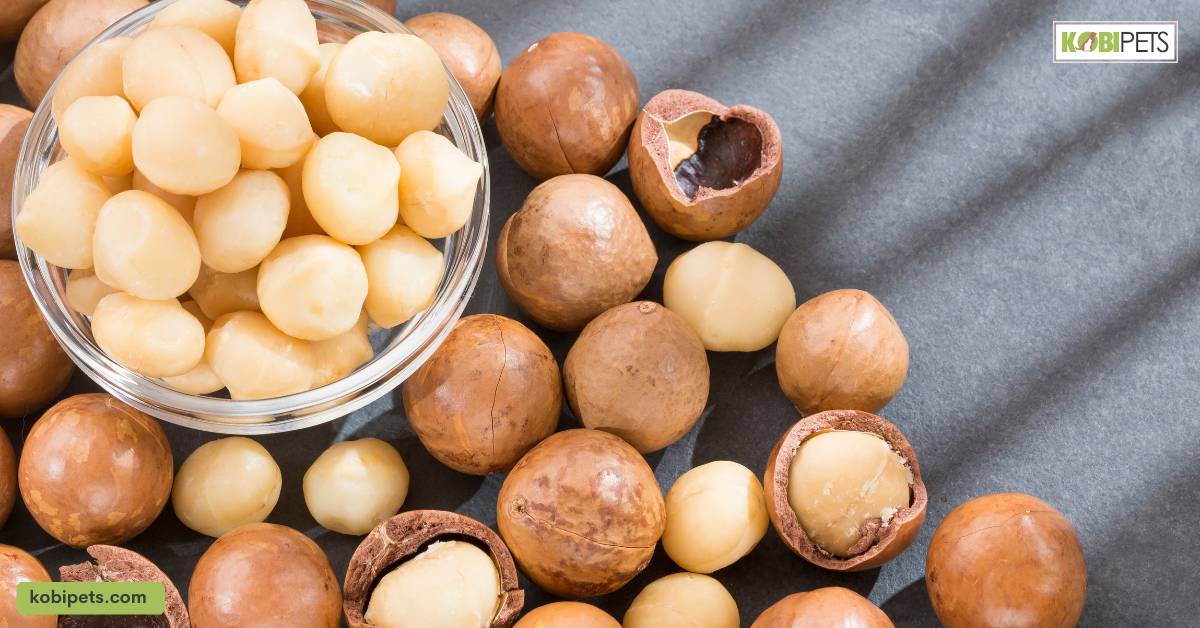
7. Xylitol
As a dog owner, it’s important to be aware of the foods that can harm your furry friend. One such food is xylitol, a sugar substitute commonly found in sugar-free gum, candy, and baked goods. While xylitol may be safe for human consumption, it can be extremely dangerous for dogs.
When dogs ingest xylitol, it can cause a rapid insulin release which leads to hypoglycemia (low blood sugar). Symptoms of xylitol poisoning in dogs include vomiting, loss of coordination, seizures, and even liver failure. In severe cases, xylitol toxicity can be fatal.
To keep your dog safe, always read ingredient labels carefully and avoid giving them any products containing xylitol. If you suspect your dog has ingested something containing xylitol, seek veterinary care immediately.
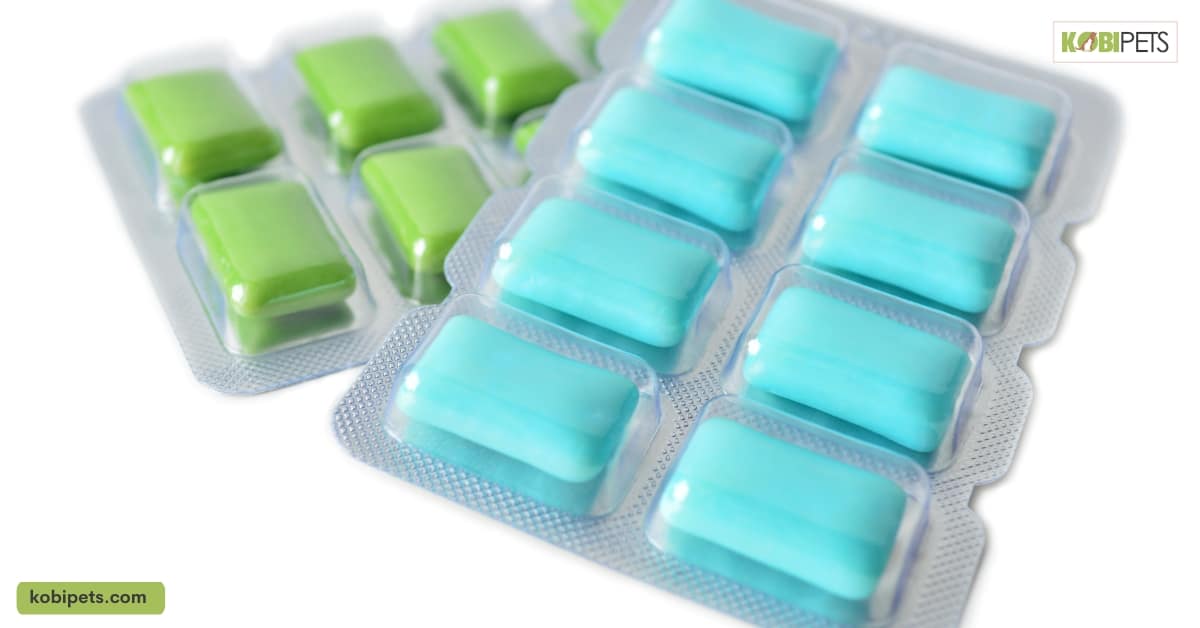
8. Cooked Bones
One of the most dangerous foods for dogs is cooked bones. While many people believe that giving their dog a bone to chew on is a natural and healthy treat, this couldn’t be further from the truth.
Cooked bones, whether they come from chicken, beef, or any other type of animal, can easily splinter and break into sharp shards that can cause serious harm to your dog’s digestive system. These sharp pieces can puncture your dog’s throat or intestines, leading to internal bleeding and potentially life-threatening injuries.
It’s important to note that raw bones are not without risk either. While they are less likely to splinter than cooked bones, they can still pose a choking hazard or cause blockages in your dog’s digestive system if swallowed whole.
To keep your dog safe and healthy, it’s best to avoid giving them any type of bone as a treat or chew toy. Instead, opt for safer alternatives like rubber toys or dental chews specifically designed for dogs.
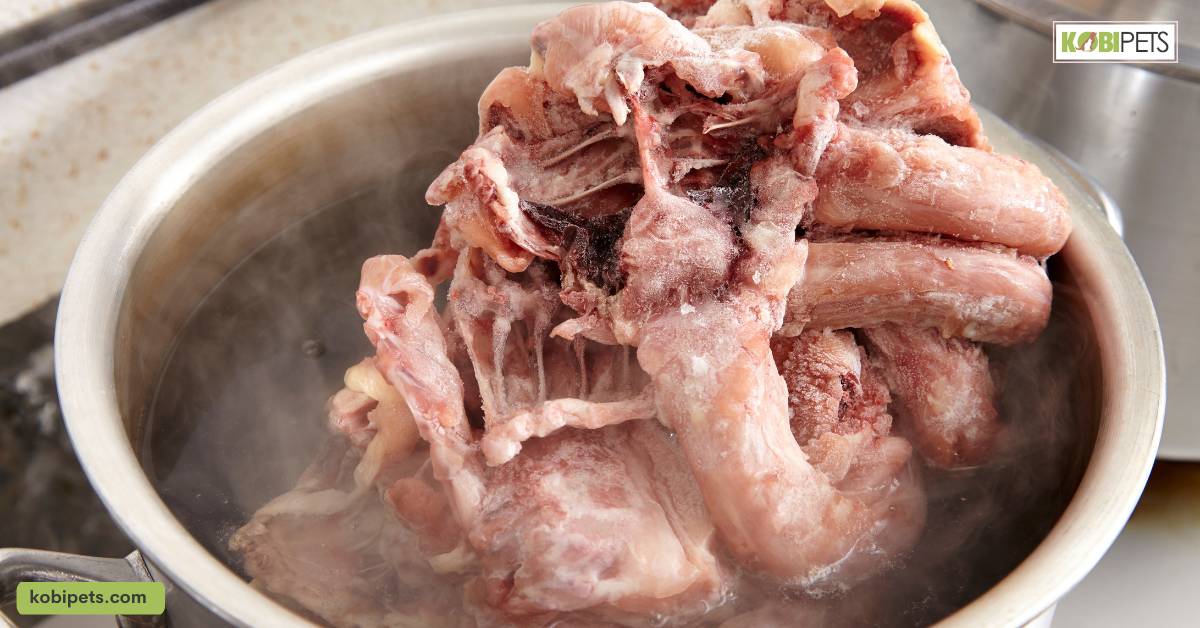
9. Dairy Products
Most dogs are lactose intolerant, which means they lack the necessary enzymes to properly digest lactose, a sugar found in milk and other dairy products.
When dogs consume dairy products, they may experience symptoms such as diarrhea, vomiting, and gas. In some cases, dairy consumption can even lead to more serious issues like pancreatitis or obesity.
It’s important to note that not all dairy products are created equal when it comes to their effects on dogs. Some types of cheese and yogurt contain lower levels of lactose and may be easier for your dog to digest in small amounts. However, it’s always best to consult with your veterinarian before giving your dog any type of dairy product.
If you do choose to give your dog a small amount of cheese or yogurt as a treat, make sure it is plain and does not contain any added sugars or flavorings that could be harmful. And remember, moderation is key – too much of any food can be harmful to your dog’s health.
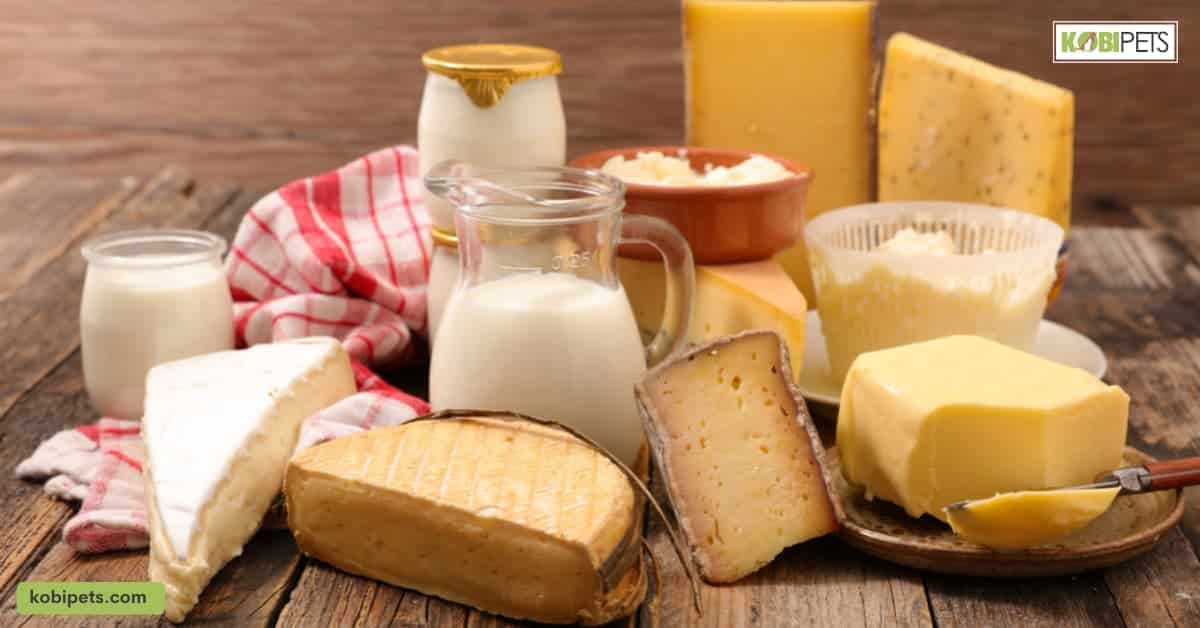
10. Raw Meat and Eggs
Raw meat, especially ground beef, may contain harmful bacteria such as Salmonella and E. coli that can cause food poisoning in dogs. Similarly, raw eggs can also carry Salmonella, which can lead to vomiting, diarrhea, and even death in severe cases.
While some people may argue that raw meat and eggs are natural sources of nutrition for dogs, it’s important to note that domesticated dogs have different digestive systems than their wild counterparts. They may not be able to handle the same level of bacteria found in raw meat and eggs.
So what should you do if your dog accidentally consumes raw meat or eggs? It’s best to monitor them closely for any signs of illness such as vomiting or diarrhea. If symptoms persist or worsen, seek veterinary care immediately.
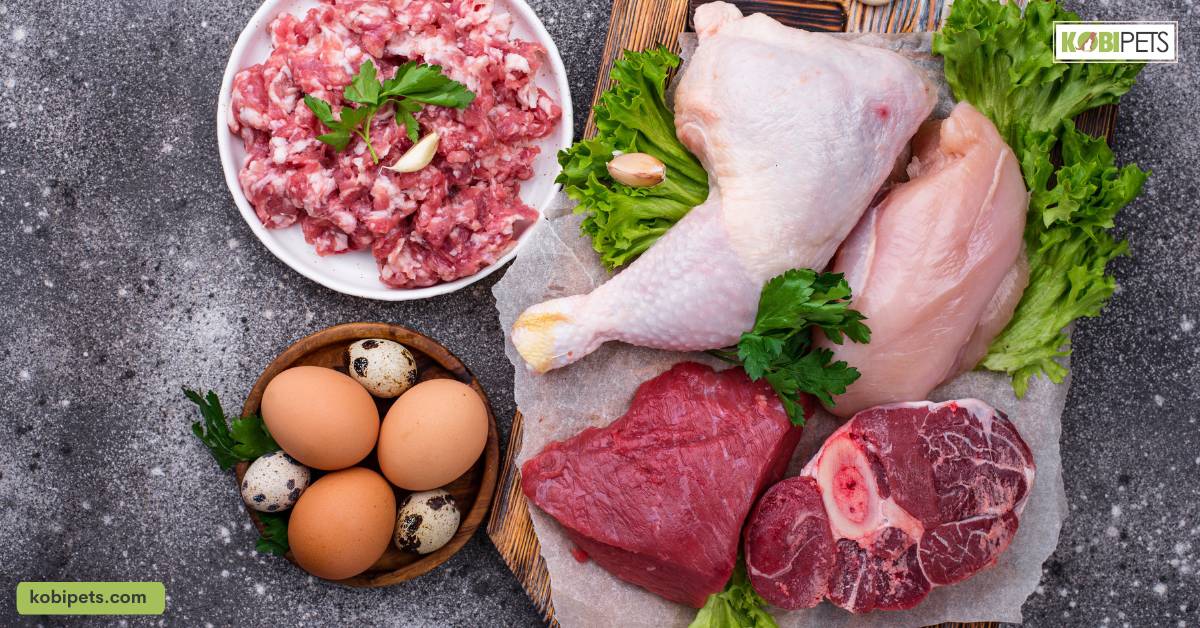
11. Human Junk Food
As much as we may enjoy indulging in junk food from time to time, it’s important to remember that these types of foods are not suitable for our furry friends. Human junk food can be high in sugar, salt, and fat, which can lead to a range of health issues for dogs including obesity, dental problems, and even pancreatitis.
Some common examples of human junk food that dogs should avoid include chocolate, candy, chips, and fried foods. Chocolate is particularly dangerous for dogs as it contains a compound called theobromine which can be toxic in large amounts.
Additionally, some types of nuts such as macadamia nuts and walnuts can also be harmful to dogs. These nuts contain toxins that can cause vomiting, diarrhea, and even seizures in some cases.
While it may be tempting to share your favorite snacks with your furry friend, it’s important to always consider their health first. Stick to dog-friendly treats and avoid giving them any type of human junk food.
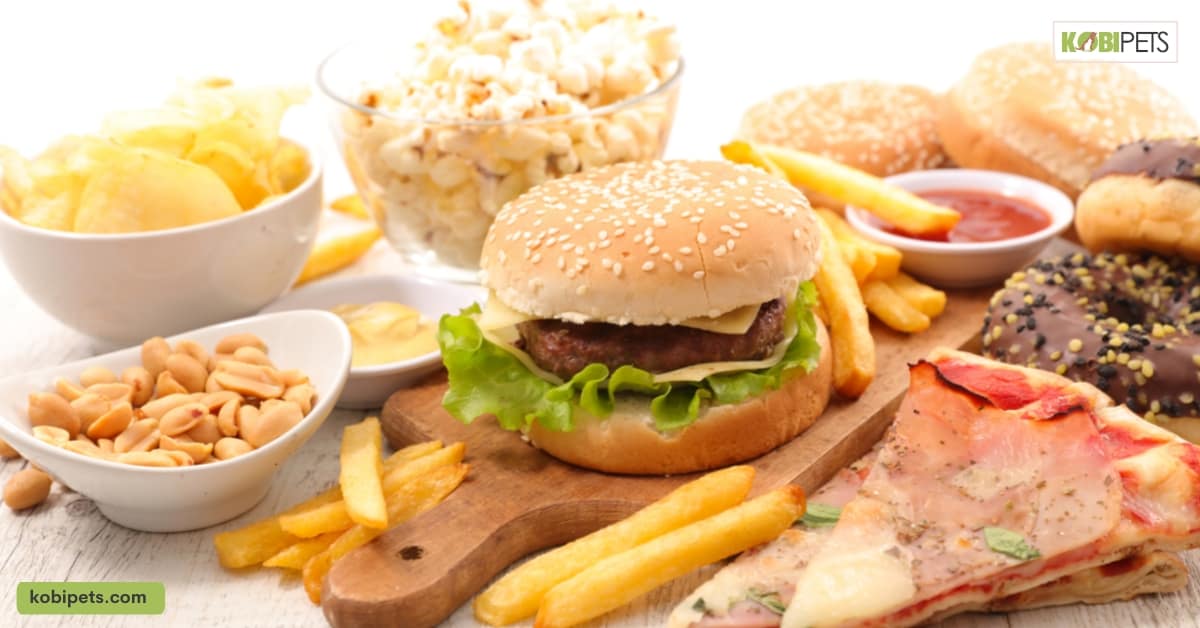
In conclusion
To conclude, while fresh vegetables, dairy, and meat can provide your pooch with the vitamins and minerals they need to stay healthy, there are certain human foods that should be avoided.
It is important to ensure that dogs do not consume chocolate, grapes or raisins, onions or garlic, nuts, yeast dough, heavy spices, xylitol sweetener, avocados, apple cores containing seeds, salty snacks, and alcoholic beverages.






